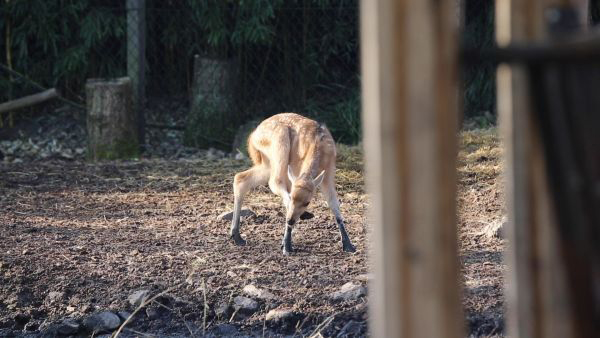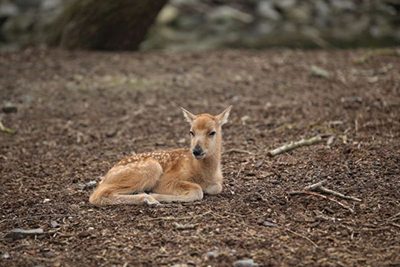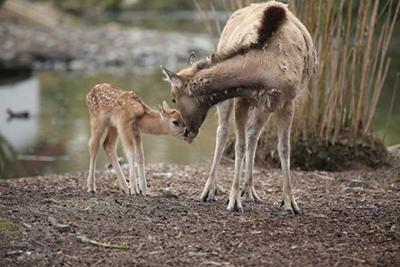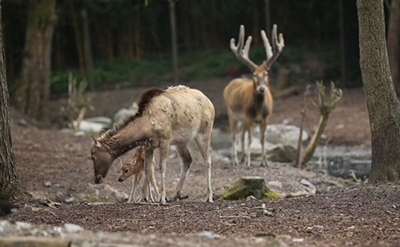
Pairi Daiza is very happy to announce the birth of a little deer from Father David!
This deer species is officially declared "extinct in the wild" by the IUCN (International Union for Conservation of Nature).
This birth is excellent news for the preservation of the genetic diversity of the species.
This is the very first baby of Father David's deer couple welcomed to Pairi Daiza, who are both 4 years old.
Four years is a fairly young age for babies, which may point to more births in the future.
It was on April 1 that the caregivers noticed the birth of this little one.
The fawn, which is therefore just over a week old, is in good health.
But her gender is unknown at the moment, her caregivers preferring to leave the group alone during these first days.
An extinct species in the wild:
whether it is a male or a female, this birth is good news for the species, which owes its western name to the French missionary and naturalist Armand David.
Father David announced the discovery of this species for the West in the 19th century.
At that time, almost all the wild populations originating in China were already extinct due to hunting and human activities which reduced the habitat of the animal.
Today, according to the IUCN (International Union for Conservation of Nature), Father David's deer only exists in captivity. Several projects to reintroduce these animals were carried out in China in the 1980s, but without achieving the results hoped for so far.
 Their territory in Pairi Daiza: Their territory in Pairi Daiza:
Father David's three deer are installed in the Middle Kingdom, the Chinese garden of Pairi Daiza. This vast territory was designed to meet their needs.
It is dotted with ponds and small shallow rivers which they particularly like.
With their wide apart hooves, adapted to a semi-aquatic life, these deer appreciate the shallow waters.
In their territory, they coexist in perfect harmony with Japanese cranes and the Indian muntjac, this small Asian deer.
Japanese cranes and muntjac also appreciate wetlands and marshes.
As soon as the park opens after containment, visitors will be able to observe these magnificent animals.

|



